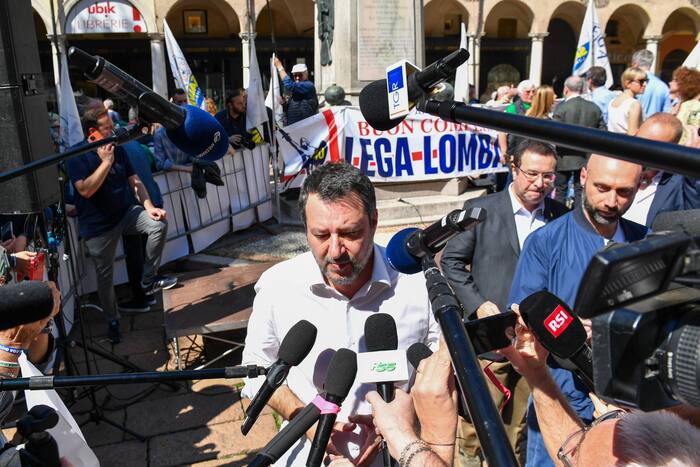A woman casts her vote for the referendum this Sunday at a polling station in Zurich.ARND WIEGMANN / Reuters
Switzerland buried its climate law on Sunday.
With 51% of votes against, the Swiss rejected in a referendum the proposal that envisaged a series of measures to cut carbon dioxide (CO₂) emissions by half between now and 2030 (compared to 1990), in line with the objectives of the Paris Agreement to curb climate change.
This is a major surprise, since the initiative was supported by the Government and all political parties, with the exception of the ultra-right UDC.
However, the rejection of the rural regions was ultimately decisive.
More information
Germany advances its climate neutrality goal by five years: zero emissions by 2045
Macron presents his bill on the climate in full questioning of his ecological commitment
Congress passes the first climate law to eradicate greenhouse gases by 2050
The result has to do with the resistance to the introduction of taxes to reduce CO₂, but also with the strong opposition of the rural population to two other proposals of the referendum to restrict pesticides and with the moment chosen to carry out the consultation, still in the middle. of the pandemic.
In the vote of the people, the idea that the rates of the climate law would have led to a slight increase in gasoline and diesel, and would have had an impact on the price of airline tickets for flights leaving from Switzerland weighed more heavily. , as well as in the fuel used for heating.
The Government's argument that this climatic rate was redistributive, that is, that in exchange the citizenry would have received direct financial compensation - through, for example, the reduction of the monthly payment of onerous medical insurance (in Switzerland, access to health goes through insurance that is contracted through private insurers) - not convinced enough.
The initiative proposed that half of the money collected through the climate tax would be destined to a Climate Fund, which would have served to incentivize investments, innovations and new technologies favorable to climate protection.
The CO₂ Law, as this set of measures was known, also obliged vehicle sellers to propose increasingly efficient units in terms of emissions.
Critics of the initiative considered it too costly and ineffective, but analysts who have reviewed the result of the referendum believe that the consultation has been raised at a bad time, coinciding with a difficult economic environment due to the COVID-19 pandemic. 19.
A few weeks ago, polls indicated that this climate rate had broad citizen support, which was eroding as opponents exposed the likely costs to households.
On the other hand, the Swiss also rejected, by 60% of the vote, initiatives that sought to ban the use of pesticides. The first initiative, called 'For clean drinking water and healthy food', proposed to condition subsidies for Swiss farmers on the respect of much stricter measures to protect water, including water tables, and biodiversity. The second initiative sought to totally ban the use of synthetic pesticides throughout the country, as well as the importation of food products that contain them.
Virtually all farmers' associations, including some dedicated to organic farming, were against both proposals, considering that they were extreme and could cause a drop in local production, and ultimately even jeopardize supplies of food in Switzerland.
You can follow CLIMA Y MEDIO AMBIENTE on
and
, or sign up here to receive
our weekly newsletter






